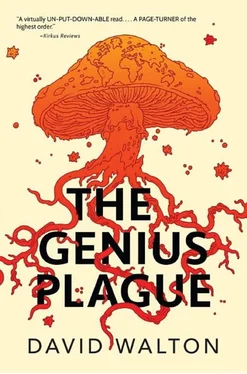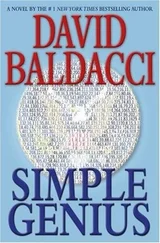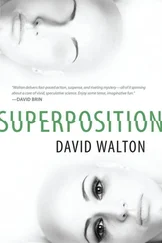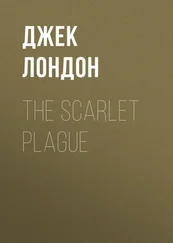“What we’ve managed to do here is hack the fungus right back. Instead of trying to defeat it, we’ve redesigned our own version of it, one that will interface with the original version already in situ .”
“No surprises yet,” Melody said, keeping her voice low. “That’s what they do here.”
“What is?” I asked.
“Genetic tweaking. Take a deadly sheep disease and modify it to affect humans, for instance. Or shorten its incubation period. Or aerosolize it. Anything to make it more deadly on a battlefield or in the hands of a terrorist.”
“Doctor?” a woman in a Navy uniform asked. “Does this mean you’re planning to infect people with a second version of the fungus?”
“Exactly right, Captain. The first one we can’t do very much about. With our modifications, however, the second one we can very much control.” He beckoned to the glass. “Let me draw your attention to the patients in the far room. Each of them presented with an established infection of Aspergillus ligados . They were captured by military or law enforcement and brought here for study and treatment.
“Earlier this morning, they were further infected with our new strain of the fungus. Before and after treatment, each patient was lucid, able to give his or her name, remember salient indicators of time and place, and answer questions involving simple mathematics or memory. Before treatment, however, most patients were surly, largely uncooperative, and on several occasions attempted to harm or kill research staff. Now, as you will see, they are significantly more accommodating.”
McCarrick pulled a small, wireless microphone out of the pocket of his lab coat like a magician producing a wand. He pressed a button, and a high-pitched whine began, just at the edge of our hearing.
“That high tone you hear is what we call our ‘command signal,’” McCarrick explained. “It’s the control we use to distinguish our instructions from anyone else’s. It’s a complex set of frequencies that induces a vibration pattern in the new molecules we’ve introduced into the system. You can think of it kind of like a key.”
“A key to what?” the man sitting next to Melody asked.
McCarrick smiled. “To their minds.” He raised the microphone to his lips. “You want to raise your right hand,” he said.
All two hundred ‘patients,’ as McCarrick had called them, raised their right hands.
It was creepy enough that I tensed and leaned back against my chair. I noticed I wasn’t the only one.
The patients didn’t stop their conversations or anything they were doing. Three young men, who had been bouncing a stone against the wall in a kind of game, continued the game, only now with their right hands raised. None of them seemed to think it was odd.
“You want to raise your left hand,” McCarrick said into the microphone.
The patients obeyed, for all the world like the wish was their own. The three men playing with the stone switched to kicking it instead, altering their game to accommodate the fact that both of their hands were now held over their heads.
“I want to stress that these people have not been conditioned in any way,” McCarrick said. “No reward has been offered nor punishment given for disobedience. We are simply demonstrating, in dramatic fashion, the access to their wills that the fungal network has created.”
He spoke into the microphone: “It is no longer of great importance to you what you do with your hands.” The patients all lowered their hands and continued to use them as they had before.
The viewing room erupted into noise as the visitors threw out questions. I might have thought McCarrick had compelled us the same way, considering all the hands that shot into the air. I kept quiet, still shocked by what I had just seen. People not only forced to act but compelled without their knowledge, under the delusion that the act was their own wish. It was the same thing the fungus did, but this was different. This was humans doing it to each other.
“Doctor McCarrick,” General Barron said, and the other voices in the room fell silent. “This is amazing work. Compelling people to raise their hands, however, is a far cry from what may be necessary.”
McCarrick raised a finger. “Ah,” he said. “My demonstration isn’t quite finished.”
“Well, then, let’s see it,” Barron said.
“You want to lie down on the ground,” McCarrick said into the microphone.
The patients complied, including one old woman who pushed herself out of her wheelchair to fall onto the ground.
“You want to stand up.”
Again, the patients obeyed, jumping to their feet. The old woman, obviously unable to stand, tried anyway, crying out in pain when her legs wouldn’t hold her weight.
“Stop this,” I said. “You’ve made your point.”
“You want to kill each other,” McCarrick said.
I sprang to my feet. “No!”
The response was immediate and violent. Patients assaulted one another with punches and kicks, wrapped arms around each other’s necks, grabbed hair to bash heads against the floor.
“You have no wish to harm anyone,” McCarrick said, and the violence stopped. Only seconds had passed. The patients helped each other up, brushed off dirt, dabbed at wounds.
“This is wrong,” I said. “Unethical, cruel, however you want to say it. Those are people in there. Human beings, who had the bad luck to catch an infection any one of us could have gotten. They’re not our experimental playthings, no matter how much insight they give us.” I felt something on my arm, and looked down to see Melody tugging at my sleeve, trying to get me to sit down. “Not now,” she mouthed. I thought of my father, under similar compulsion, tapping out Morse code on the rails of his hospital bed, and felt sick. “If this is how we win,” I said, “then I’m not sure I want to.”
I sat. “There are ways to push that argument,” Melody said softly. “This isn’t it. If you make a point of it now, you’ll just get thrown out of the room.”
Dr. McCarrick pasted a broad smile on his face and addressed the room as a whole. “We’re not doing anything the fungus hasn’t already done,” he said. “These people are already infected. They’re already being compelled to kill their friends and fellow citizens, to assassinate their leaders. The fungus can make them want to do anything, and they’ll pursue it single-mindedly, as if it were their dearest wish. As if their only child’s life depended on it. No matter what it is: kill the person next to them, chew through their own arm, anything. What we’re doing isn’t creating that compulsion but taking control of it. We’re controlling the thing that’s controlling them.”
“Excellent work,” General Barron said. “This is exactly what we need, and not a moment too soon. How soon can it be ready for the field?”
“It’s ready now,” McCarrick said. “It’s only a matter of quantity. We can produce millions of spores from a single agar dish in twenty-four hours, and given enough space to grow, billions more from those. We can circulate them to other major infectious disease research facilities with level 3 biosafety labs—Walter Reed in Silver Spring, for instance—and increase the production rate.”
“And what happens if you circulate these spores on the battlefield and uninfected people breathe them in?” Melody asked, her voice calm. “Our own soldiers, for instance?”
“A good question,” McCarrick said. “These spores are effectively the same species as the original, so infection means the same as always—mind control by the fungal host. The only difference is that it comes with our own markers, allowing us to hijack that control. So yes, we want to avoid exposing uninfected people to these spores, especially our own troops. They’re just as deadly as the original kind.”
Читать дальше












